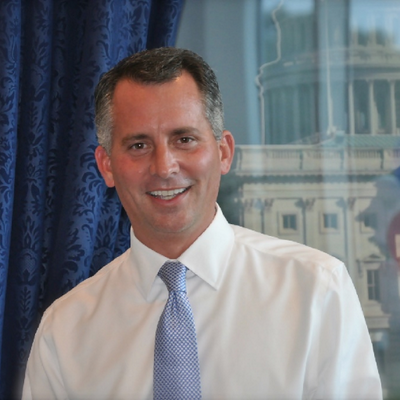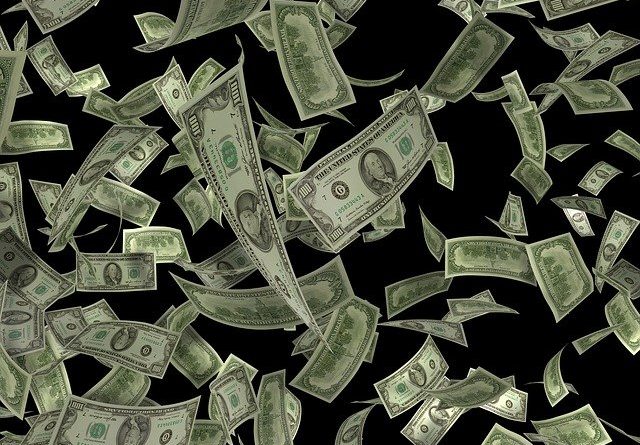Trump is Not Biden’s Worst Enemy, it is Inflation
Sandra Hofmeister has been in the construction business for about 13 years and owns a roofing company in Frederick, Maryland that has been in business since 2021. The company relies on 1099-contract workers to perform construction jobs and has had to raise its prices for services and materials due to escalating inflation.
“Business has been a rollercoaster full of ups and downs since COVID … It is harder to compete with bigger companies who have more purchasing power,” said Hofmeister, an undecided voter, who came to the U.S. from Peru in 2006.
Hofmeister is a member of the Frederick County Chamber of Commerce’s Board of Directors. She said pandemic supply-chain issues have led to “discontinued products” and as a result, “costs are rising.”
Hofmeister said she has found that many people are reluctant to pay higher prices for services, even those who can afford to do so.
And small business owners aren’t the only ones who are feeling the pinch.
When Republican Donald Trump left the White House in January 2021, the price of a box of a dozen eggs was about $1.60 and the price of a loaf of bread was about $1.55.
Today, in January 2024-three years after Democrat Joe Biden was elected president a dozen eggs costs almost $5, and a loaf of bread costs about $2. In 2023 alone, food prices increased about 3%, according to the U.S. Department of Labor’s Bureau of Labor Statistics (BLS).
When Trump left office the average home cost about $300,000. Now the average home costs about $430,000-effectively pricing out many in the middle class and making homeownership-once the very cornerstone of middle-class equity luxury that only the wealthy can afford.
Americans are angry about inflation, which according to economists is largely the result of supply chain shortages prevalent during the pandemic, and federal spending on recovery programs.
But recent polls suggest they blame Biden for inflation, as Trump is leading in all seven of the crucial battleground states.
What’s worse for Biden, is that those same polls show him losing support among key Democratic constituencies such as African-Americans, Hispanics, and voters under age 35.
While a lot can change in the 10 months between now and Election Day, if Biden’s numbers don’t improve, it is hard to see him gaining enough support to win a second term in office.
To Biden’s credit, more than 14 million jobs have been created since he took office. Biden got a landmark infrastructure bill through Congress. Biden saw the nation through some of the darkest days of the COVID-19 pandemic and into the post-recovery period. And gasoline prices have come down significantly since early last fall.
The Federal Reserve has signaled that rate cuts are possible this year. Inflation is gradually cooling. But it may not be coming down fast enough for the average American to feel significant relief when shopping for groceries or when looking to buy a new home.
And in the modern political era that usually spells disaster.
Presidents and inflation: A brief history:
Republican Richard Nixon in 1970 instituted a 90-day wage and price control freeze to counter inflation that was in the neighborhood of around 6%. Nixon was re-elected in a landslide in 1972, winning 49 states due in part to a weak Democratic opponent and a strong economy that was bolstered by a decade of U.S. involvement in Vietnam. But Nixon’s wage and price control freeze only delayed the inevitable.
Under Nixon’s successor, his vice president, Gerald Ford, who was only in office for about 2.5 years, inflation rose about 5%. Ford lost to Democrat Jimmy Carter in a close election in 1976 that largely focused on Nixon’s Watergate scandal which had led to his resignation in 1974.
Under Carter, inflation rose close to 12%. Carter lost 40 states in his 1980 re-election bid against Republican Ronald Reagan amid an environment of high inflation and stagnant economic growth. The Carter years are remembered by many for long gas lines and an overall economic “malaise.”
During Reagan’s eight years in office (1981-89) inflation dropped below 5%. Reagan, like Nixon, won 49 states in his re-election campaign.
Reagan was succeeded in office by his vice president, George H.W. Bush.
During Bush’s four years in office (1989-93) inflation was low, hovering slightly above 3%, but unemployment rose above 7%.
Bush lost 32 states in his re-election bid against Democrat Bill Clinton amid a brief recession that had actually concluded 18 months before the campaign but for which he was still blamed. Bush was often mocked as an out touch of patrician.
That sentiment was seemingly bolstered when Bush visited a grocers convention in Orlando during the campaign and appeared confused at the sight of a barcode scanner. Despite the negative press generated by that event, it was later reported that the scanner Bush was shown was a more updated model that was not as prevalent at the time.
Americans know full well that their presidents don’t go grocery shopping. But when there is widespread economic pain they tend to lose trust in leaders who do not appear to understand what they are going through. And in politics perception is often more important than reality.
Inflation remained below 5% for the administration of Democrat Bill Clinton (1993-01) and below 3% during the administrations of Republican George W. Bush (2001-09) and Democrat Barack Obama (2009-17). All three men were re-elected.
Inflation was below 1.5% during the four years of the Trump administration and rose to 5% under Biden.
Do voters care what is causing their pain? Or only that they are experiencing pain?
What is the likelihood of Biden’s re-election in the current political environment? Can he avoid the fate shared by both Carter and H.W. Bush?

“Stock market is at an all-time high. Interest rates appear to be moderating, which could drive the market higher. Economic growth is poised to continue with the job market improving. None of us have crystal balls that predict the future, but a poll today is not worth spit ten and a half months from now,” Former Rep. Ron Klink told the Baltimore Post-Examiner.
Klink, a Pennsylvania Democrat, who served from 1993-01, suggested a Trump return to power is too awful to contemplate.
“Biden’s likely opponent sounds more and more like a fanatical dictator in waiting, who ran up incredible debts, mismanaged the pandemic, did not rebuild our infrastructure, which Biden is doing.
When you compare levels of success, I’m confident Biden will win the comparison.”
Former Rep. Jason Altmire, somewhat disagreed, saying Biden is at serious risk of losing re-election.

“The downturn in the president’s approval ratings would be cause for alarm with any administration, but combined with the nagging concerns about his age, his re-election is in real doubt.”
Altmire, also a Pennsylvania Democrat, who served from 2007-13, added: “Everywhere I go in Washington, Democrats are very worried and there is a noticeably less dismissive attitude about the prospects of Trump winning despite all of his legal obstacles. President Biden seems to think he is the only one in the Democratic field who can defeat Trump, but it is looking more and more like he is the one who would give Trump the best chance to win.”
But former Rep. David Jolly said it may be too early to assess Biden’s re-election chances.

“The economy is the absolute wildcard. Consumer confidence seems to be the real drag for Biden politically eleven months out, despite decent numbers otherwise supporting a long-term recovery. If voters are pessimistic about the economy in November, Biden is in trouble. If confidence in the economy has turned around by November, it is probably enough to lift Biden to re-election.”
Jolly, a Florida Republican, who served from 2014-17, said the election likely will be decided by a small percentage of undecided voters.
“Trump is an electrically divisive candidate. He has little margin to play with if he is to beat Biden, indeed relying on a strategy of likely losing the popular vote but pulling an inside straight with critical electoral college states. If Trump’s numbers dip even the slightest, or if the 4% to 6% of persuadable voters who will decide this election decide they just can’t support Trump, then Biden wins. Those voters allied with Democrats in 2018, 2020, and 2022, even when history suggested they wouldn’t. If they stick with Democrats in 2024, Biden has a strong chance of being re-elected.”
Rick Tyler, an MSNBC political analyst and partner and co-founder of the political consulting firm Foundry Strategies, said despite economic concerns, Biden is likely to win re-election.
“Voters will always express their discontent, sometimes in opinion polls and other times in the actual polls. But in this case, I don’t think voters are about to trade the slow but steady decline in gas, food, mortgage and housing prices nor the slow but steady increase in the markets, wages and jobs growth for a return to the chaos of Trump that culminated in a near market collapse and the loss of millions of jobs.”
Tyler dismissed polls showing Biden losing support among younger voters due to his support for Israel in its war with Hamas.
“On the foreign policy front, left-leaning young voters upset with Biden’s support for Israel would have to be irrational to trade Biden’s Middle East Policies for Trump’s.”
Polls also show Biden losing support among Muslim-Americans, which could prove fatal to the president’s re-election chances due to their prevalence in the crucial swing state of Michigan. More than 200,000 registered voters in Michigan identify as Muslim. Biden won Michigan by little more than 150,000 votes in 2020, so even a small defection among that group could change the outcome of the election.
Back to inflation, Hofmeister reiterated that many small business owners are hurting. She said they often have to “pay more” for labor, and that that cost is then passed on to the customer so businesses can simply maintain a “profit.”

Bryan has a Bachelor’s Degree in Political Science and a life-long passion for politics at all levels. He has interned in the Maryland General Assembly and has volunteered for several congressional campaigns. Given this particular background, he has a unique insight into the dynamics of political analysis. When he is not writing, Bryan spends his time reading about history and frequenting Chinese restaurants.

